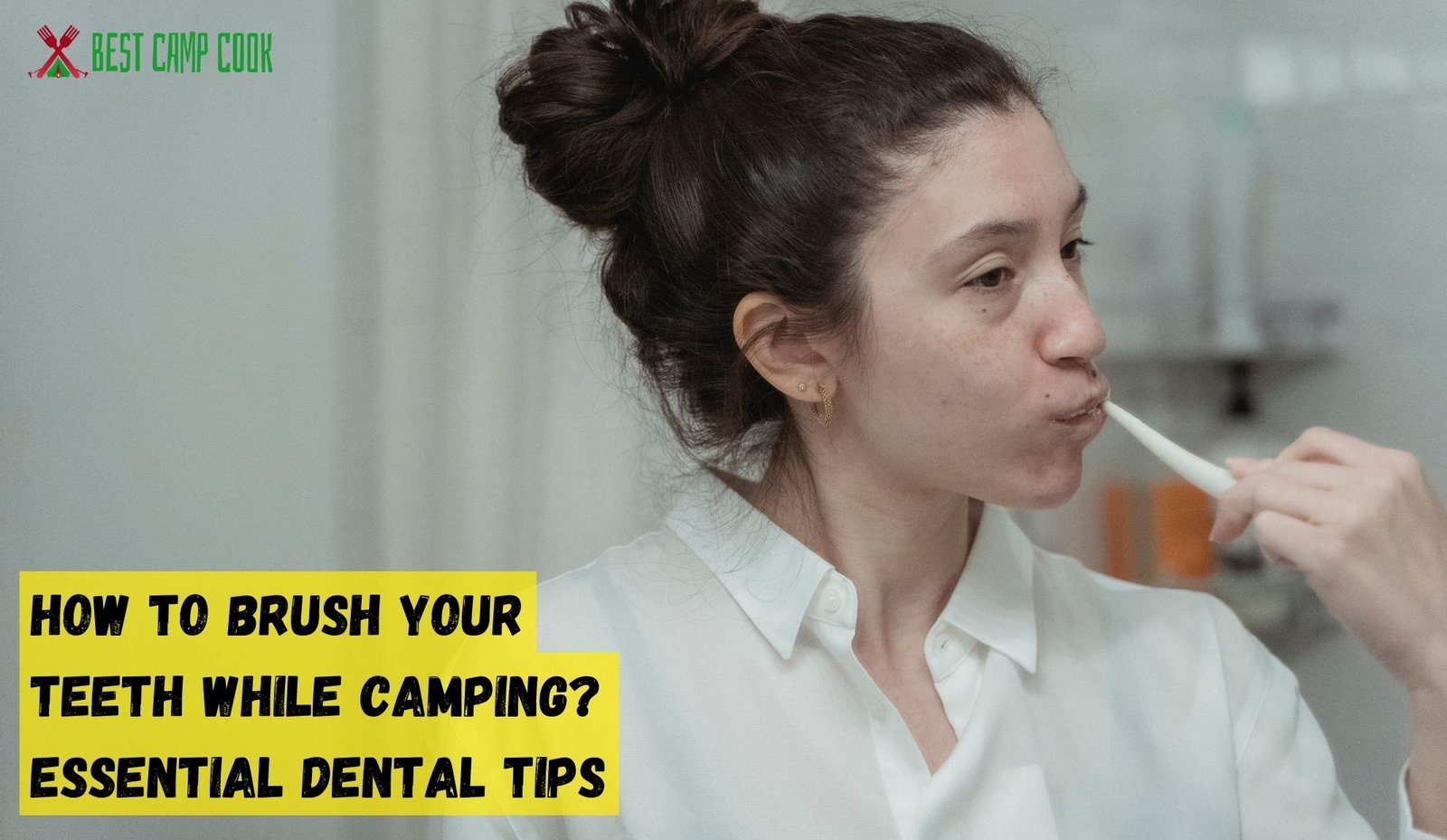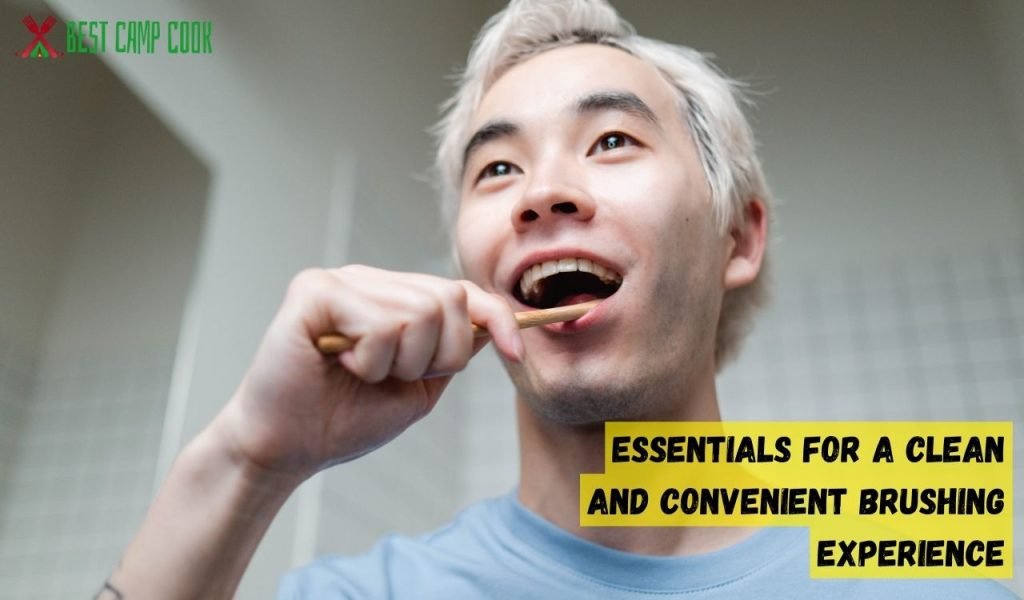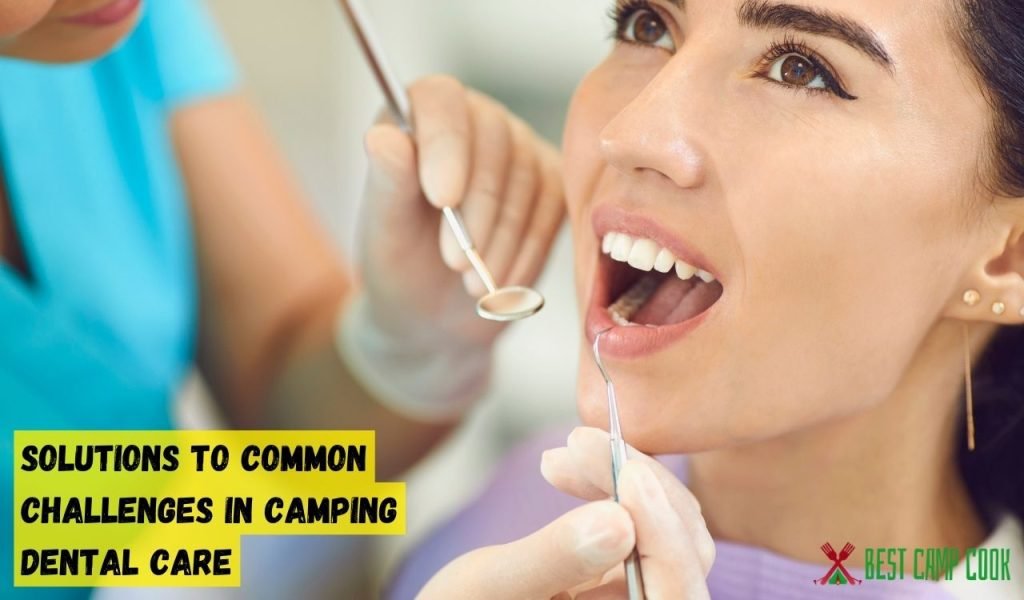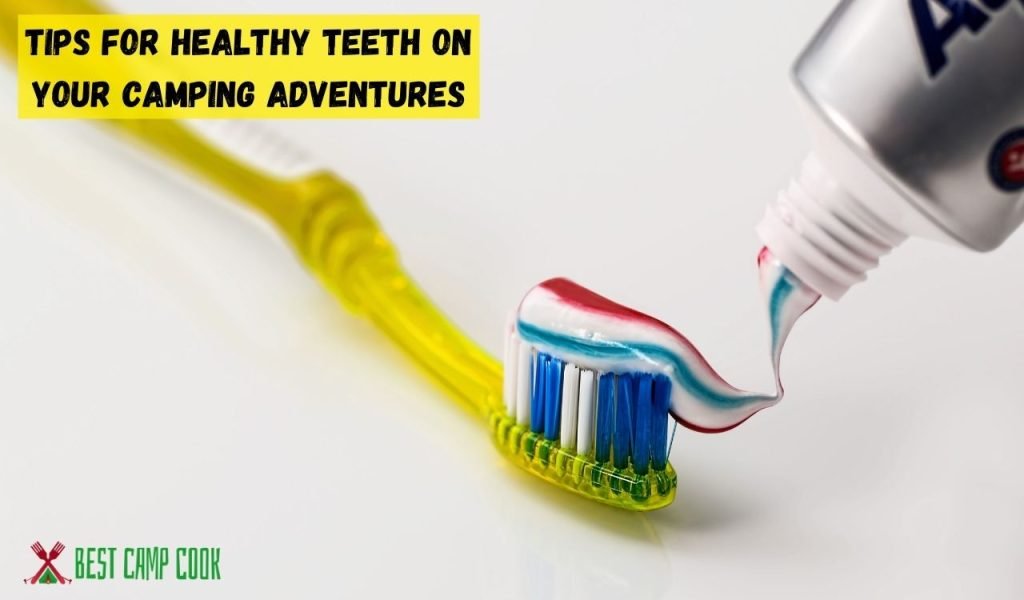Physical Address
304 North Cardinal St.
Dorchester Center, MA 02124
Physical Address
304 North Cardinal St.
Dorchester Center, MA 02124

Looking to maintain your pearly whites even when you’re roughing it in the great outdoors? Look no further! In this handy guide, we’ll show you how to brush your teeth while camping like a pro. Say goodbye to sacrificing your dental hygiene during your outdoor adventures. We’ve got all the tips and tricks you need to keep your smile fresh and sparkling, even in the wilderness.
So, whether you’re trekking through the mountains or lounging by the campfire, our simple yet effective techniques will ensure that your teeth stay clean and healthy. Get ready to conquer the camping experience without compromising on oral care!
Main Summary: How to Brush Your Teeth While Camping
Mastering dental hygiene outdoors: Learn how to brush your teeth while camping. Opt for water-saving techniques like chewing dental sticks, using biodegradable toothpaste, and a small brush for minimal impact on nature. Happy camping with a fresh smile!
Maintaining proper oral hygiene while camping is essential for fresh breath and healthy teeth. However, the challenges of limited resources and unconventional environments can make dental care seem daunting. In this comprehensive guide, we will explore practical solutions and techniques to help you brush your teeth effectively while camping, ensuring that your oral health remains a priority even in the great outdoors.

Proper oral hygiene is essential for fresh breath and healthy teeth, even while camping. Follow these tips to maintain optimal oral health:
Mastering the correct brushing technique is crucial for removing plaque and bacteria. When brushing your teeth while camping, remember to:
Conserving water is vital while camping. To minimize water usage during teeth brushing, follow these water-saving techniques:
Staying hydrated is not only important for overall health but also for fresh breath and healthy teeth. When camping, drink plenty of water to prevent dry mouth, which can lead to bad breath and an increased risk of tooth decay. In addition, staying well-hydrated helps you stay cool during the summer months, making it an essential part of your summer routine
Choosing tooth-friendly foods while camping can contribute to fresh breath and healthy teeth. Include the following in your camping meals:
Having the right tools and supplies is crucial for effective dental care while camping. Consider the following:
Opt for compact and lightweight toothbrushes specifically designed for travel or camping. Look for collapsible or folding brushes that save space in your camping gear.
Invest in travel-sized toothpaste and mouthwash containers. These smaller bottles are convenient for camping and take up minimal space in your backpack.
Don’t forget to pack dental floss for thorough cleaning between your teeth. Choose a travel-friendly dental floss that is easy to carry and use during your camping trip.
Keep your dental supplies organized and easily accessible by using a waterproof container or a toiletry bag. This will protect your toothbrush, toothpaste, mouthwash, and dental floss from moisture and keep them in one place.

To ensure a clean and convenient brushing experience while camping, consider the following essentials:
If you’re concerned about the environmental impact of your camping trip, opt for biodegradable toothbrushes made from sustainable materials such as bamboo. These eco-friendly options are just as effective as traditional toothbrushes.
Maintaining proper hygiene for your toothbrush is essential, especially in outdoor environments. Consider using a waterless toothbrush sanitizer that eliminates bacteria and keeps your toothbrush clean without the need for water.
In addition to regular brushing, pack some breath-freshening products such as sugar-free mints or gum to keep your breath fresh throughout the day. These small additions can make a significant difference, especially when camping with others.

In addition to brushing your teeth, there are other techniques you can incorporate while camping to achieve sparkling teeth:
Brush your teeth at least twice a day, using a soft-bristled toothbrush and fluoride toothpaste. Make sure to brush all surfaces of your teeth, including the outer, inner, and chewing surfaces. Use gentle, circular motions and take your time to thoroughly clean each tooth.
In addition to brushing, flossing is crucial for maintaining oral hygiene and achieving sparkling teeth. Use dental floss or interdental cleaners to clean between your teeth and along the gumline. This helps remove plaque and food particles that brushing alone may not reach.
Using an antibacterial mouthwash can further enhance your oral hygiene routine. Rinse your mouth with mouthwash after brushing and flossing to kill bacteria and freshen your breath. Look for a mouthwash that contains fluoride for added protection against cavities.
Oil pulling involves swishing a tablespoon of coconut oil or another edible oil in your mouth for 15-20 minutes and then spitting it out. This ancient practice is believed to help remove toxins and promote oral health.
If you desire whiter teeth while camping, consider natural teeth whitening remedies. Brushing with baking soda, rubbing the inside of a banana peel on your teeth, or rinsing with hydrogen peroxide diluted with water can help brighten your smile.
While camping, it may not be possible to visit your dentist, but regular dental check-ups should not be neglected. Schedule a dental appointment before or after your camping trip to ensure your teeth are in optimal health.

Camping trips are a great way to enjoy the outdoors, but they can present challenges when it comes to dental care. Here are some solutions to common dental care challenges while camping:
If water is scarce during your camping trip, consider using waterless oral hygiene products. Look for alcohol-based mouthwashes, disposable toothbrushes with built-in toothpaste, and pre-moistened dental wipes. These products can help you maintain oral hygiene without the need for extensive water usage.
Keep your dental supplies organized and protected by using a sealed container or a toiletry bag. This will prevent them from getting wet or contaminated during your camping adventure. Additionally, consider packing travel-sized dental products to save space.
Be cautious when enjoying campfires to avoid dental emergencies. Avoid biting or chewing on hard objects like ice, as this can lead to tooth fractures. Use utensils or specialized tools to open packages instead of using your teeth. In case of a dental emergency, have the contact information of a local dentist or dental clinic readily available.
Dispose of dental products properly, especially in eco-sensitive camping areas. Do not leave used dental floss, toothbrushes, or other dental supplies in the wilderness. Pack them in sealed bags and carry them with you until you can properly dispose of them in designated waste containers.

Camping adventures can be enjoyable while maintaining good oral health. Here are some tips to keep your teeth healthy during your camping trips:
Ensure you have all the necessary dental supplies packed for your camping trip. This includes toothbrushes, toothpaste, dental floss, mouthwash, and any specific oral hygiene products you regularly use. Having these supplies readily available will help you maintain your oral hygiene routine.
While camping, it’s tempting to indulge in sugary snacks and beverages. However, excessive sugar consumption can lead to tooth decay. Opt for healthier snack options like fruits, vegetables, and nuts. If you do indulge in sweets, remember to brush your teeth afterward or rinse your mouth with water.
Stick to your regular oral hygiene routine even while camping. Brush your teeth twice a day, floss daily, and rinse with mouthwash. If access to clean water is limited, use waterless oral hygiene products as mentioned earlier. Maintaining good oral hygiene habits will help prevent dental issues during your camping adventures.
Wear a mouthguard if you plan on participating in high-impact activities during your camping trip, such as biking or sports. A mouthguard can help protect your teeth from potential injuries and fractures. It’s better to be proactive and prevent dental emergencies while enjoying your outdoor activities.
Yes, it is essential to brush your teeth when camping to maintain oral hygiene. Even though you’re away from home, regular brushing helps prevent dental problems and keeps your breath fresh. Pack a compact toothbrush and toothpaste to ensure you can maintain your oral care routine while enjoying the outdoors.
When camping, you can use a portable toothbrush and toothpaste specifically designed for travel. Look for compact toothbrushes that are easy to pack and have protective covers to keep them clean. Opt for travel-sized toothpaste tubes or consider using toothpaste tablets that are convenient and space-saving.
Brushing your teeth with cold or hot water during camping depends on personal preference. Cold water can provide a refreshing experience, especially on hot days. On the other hand, hot water can help dissolve toothpaste and create a warm sensation. Ultimately, the most important aspect is brushing thoroughly, regardless of the water temperature you prefer.
Spitting toothpaste outside is generally acceptable when camping, as long as you follow Leave No Trace principles. Ensure you spit at least 200 feet away from any water sources to prevent contamination. Consider using a biodegradable toothpaste to minimize environmental impact.
Avoid brushing your teeth immediately after consuming acidic foods or beverages, such as citrus fruits or soda. Acidic substances can weaken tooth enamel temporarily, and brushing immediately after can potentially damage the enamel. Wait at least 30 minutes after consuming acidic substances before brushing.
Yes, it is highly recommended to brush your teeth at night before going to bed. Brushing removes plaque and food particles accumulated throughout the day, reducing the risk of cavities and gum disease. Make it a habit to thoroughly brush your teeth twice a day, both in the morning and before bedtime, for optimal oral health.